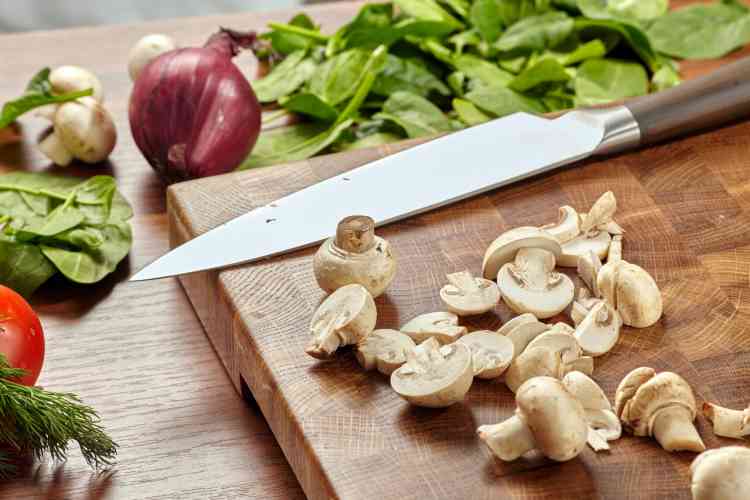For any kitchen professional, understanding the intricacies of German knife blade materials is crucial. Known for their durability and precision, these knives are a staple in many kitchens. But what exactly makes them stand out? Let's delve into the world of German knife blades and explore the materials that make them unique.

The Importance of Steel in German Knives
At the heart of every German knife is the steel used in its blade. German knives are typically made from high-carbon stainless steel. This combination offers both durability and resistance to rust, making it ideal for the demanding environment of a kitchen. The high carbon content allows the knife to maintain a sharp edge, while the stainless steel component ensures it remains corrosion-resistant.
One notable source of these high-quality knives is Solingen, Germany, often referred to as the knife-making capital due to its rich history and expertise in crafting fine blades.
Common German Knife Blade Materials
High-Carbon Stainless Steel
This is the most common material used in German knife blades. It provides a perfect balance between hardness and flexibility, ensuring the blade stays sharp while being able to withstand the rigors of daily use. The addition of chrome in the alloy offers rust resistance, a critical feature for kitchen knives constantly exposed to moisture.
Cromova Steel
Cromova steel is another popular choice, particularly in high-end German knives. It is a blend of molybdenum, vanadium, and chromium. This combination enhances edge retention and provides a superior cutting experience, making it a favorite among professional chefs.
Damascus Steel
While not exclusive to German knives, some manufacturers offer blades made from Damascus steel. These blades are renowned for their beautiful patterns and exceptional strength. They are produced by repeatedly folding different steel types, which results in a unique, wavy design across the blade's surface.
Maintaining Your German Knife
Proper maintenance is essential to ensure your German knife remains in top condition. Regular honing is necessary to keep the blade sharp. You can learn about how to hone German knives effectively to prolong their lifespan.
Cleaning your knife correctly is equally important. While some may wonder if German knives are dishwasher safe, it's generally recommended to hand wash them to prevent potential damage from harsh dishwasher detergents and high heat.
Why Choose German Knife Blades?
German knives are renowned for their robustness and reliability. They are designed to withstand heavy-duty use, making them perfect for busy kitchens. Their versatility is another significant advantage; whether you're slicing, dicing, or chopping, a German knife can handle various tasks with ease.
Moreover, the weight and balance of these knives provide an excellent feel in the hand, reducing fatigue during prolonged use. This ergonomic design is a testament to the precision engineering that goes into crafting each knife.
Conclusion
Understanding the materials that make up German knife blades is essential for any kitchen professional. These knives offer unparalleled quality, and with proper care, they can last a lifetime. For more insights into the durability of these knives, you might consider reading about how long German knives last.
Whether you're an experienced chef or a culinary enthusiast, choosing the right German knife can enhance your cooking experience. Their combination of tradition, innovation, and expert craftsmanship ensures that they remain a top choice for professionals worldwide.

FAQs
What is the best material for a German knife blade?
High-carbon stainless steel is often considered the best material due to its durability and resistance to corrosion.
How do I maintain the sharpness of my German knife?
Regular honing and proper cleaning are essential to maintaining your knife's sharpness and longevity.
Are German knives suitable for all kitchen tasks?
Yes, the versatility of German knives makes them ideal for a wide range of kitchen tasks, from slicing to chopping.


























